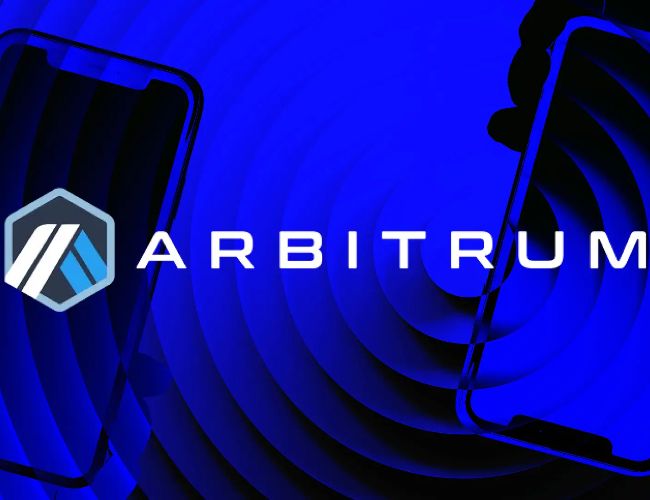The Arbitrum (ARB) network is a Layer 2 scaling solution designed to address the scalability issues and high transaction fees that have plagued the Ethereum network. Developed by Offchain Labs, Arbitrum utilizes Optimistic Rollups to process most transactions off-chain, then periodically submitting a summary of those transactions to the Ethereum mainnet. This approach significantly reduces transaction costs while increasing the network’s throughput, all while maintaining the security guarantees of the Ethereum mainnet.
One of Arbitrum’s key features is its compatibility with existing Ethereum smart contracts, allowing developers to deploy their contracts on the Arbitrum network with minimal modifications. This feature facilitates the seamless migration of decentralized applications (dApps) from Ethereum to Arbitrum, providing a more efficient and cost-effective experience for users.
As Ethereum’s preeminence grew, it faced challenges related to scalability and transaction fees, necessitating a solution like Arbitrum. The network aims to integrate seamlessly with Ethereum’s ecosystem while addressing these challenges. In this article, we will delve deeper into the core features of the Arbitrum network and examine its potential within the Ethereum ecosystem.
Core Features of Arbitrum Network
Scalability Promise: Arbitrum addresses Ethereum’s scalability bottleneck by implementing Optimistic Rollups, which aggregate most transactions into a single summary, achieving significant scalability improvements. This paves the way for faster confirmation times and higher throughput, providing a more efficient user experience on the Ethereum network.
Ecosystem and Adoption: The Arbitrum network has garnered significant attention within the Ethereum ecosystem, with prominent projects and protocols planning to deploy on Arbitrum or explore integrations. This growing ecosystem includes decentralized exchanges (DEXs), lending platforms, gaming applications, and more, providing users with diverse options for interacting with dApps and accessing various DeFi services.
Smart Contract Execution: Arbitrum’s optimistic execution technique processes smart contracts off-chain, providing efficient and secure smart contract execution. This approach leverages fraud proofs, enabling anyone to challenge invalid transactions by submitting evidence to the Ethereum mainnet.
Decentralization and Security: While relying on the Ethereum mainnet for final settlement and security, Arbitrum maintains a high level of decentralization and security, benefiting from Ethereum’s robust consensus mechanism.
Seamless User Experience: Users can continue using their existing Ethereum wallets, such as MetaMask, to interact with the Arbitrum network. This familiar and compatible approach eases the transition from Ethereum to Arbitrum and allows users to enjoy improved scalability and reduced transaction fees without significant changes to their workflows.
Unique Features of Arbitrum
High EVM Compatibility: Arbitrum is one of the most EVM-compatible rollups, working seamlessly with languages like Solidity and Vyper, making it easy for developers to build on the platform without the need to learn a new language.
Decentralized Finance (DeFi) Applications: Arbitrum can be used to build and run DeFi applications, benefiting from fast transaction processing times and low gas fees, enabling efficient and affordable transactions.
Low Transaction Fees: As a Layer 2 scaling solution, Arbitrum minimizes transaction fees, cutting them down to a fraction of what they are on Ethereum, while still providing sufficient incentives for validators.
Well-developed Ecosystem: Arbitrum is already working with a wide variety of Ethereum DApps and infrastructure projects, fostering a well-developed ecosystem.
Cross-Chain Interoperability: The Arbitrum network can enable cross-chain interoperability, allowing for the seamless transfer of assets and data between different blockchain ecosystems.
Getting Started on The Arbitrum Network
To buy and sell tokens on the Arbitrum network, users must first obtain a MetaMask wallet, a popular browser extension wallet for interacting with blockchain networks like Ethereum. Once set up, the MetaMask wallet allows users to manage their cryptocurrency wallets and interact with decentralized applications (DApps) while executing transactions securely on supported blockchain networks.
Trading On the Arbitrum Network
In order to execute trades on the ARB network, users will need to fund their wallets with Ethereum (ETH) to cover gas fees, as the majority of trading activity takes place on the Arbitrum layer 2 solution. ETH can be purchased on centralized exchanges and transferred to the MetaMask wallet, or acquired directly within the MetaMask wallet using traditional payment methods.
In conclusion, the Arbitrum network offers a range of exciting possibilities for developers and users, providing a seamless and efficient platform for deploying highly scalable Ethereum-compatible smart contracts. Its compatibility, low fees, and well-developed ecosystem make it a compelling choice for decentralized applications and DeFi projects.









